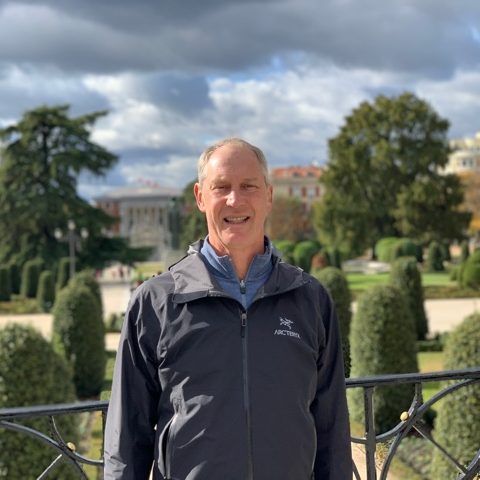The Legacy Council is an Edward Lowe Foundation program for entrepreneurs who have either exited their companies or are nearing the exit stage. The goal is to focus on the next phase of their entrepreneurial journey: transitioning from their business to their personal legacy and how they want to be remembered. Yan Ness, who was among the first cohort of Legacy Council participants, discusses some of his takeaways:
A serial entrepreneur in Ann Arbor, Michigan, Ness has launched three technology companies, growing them from startup into multimillion-dollar businesses and then successfully selling them. When Ness exited his third company, Online Tech, he found himself navigating unfamiliar territory: free time. “The first six months were great,” he says. “My wife and I went sailing and traveled, doing all the things I had put off while building my businesses. But then I ran out of things to do. I found myself staring out the window, watching too much Netflix and stressing out what to do with my time and resources. I needed help.”
Ness did two things: He agreed to serve a three-year term as chairman at Verge.io, a data center software company that he had invested in — and he signed up for the Legacy Council. “Any time the Edward Lowe Foundation puts out a program, it’s high quality and an incredible experience,” Ness says. “I’m not always sure what I’m going to get out of it, but it’s always meaningful.”
In-person retreat — The Legacy Council program kicks off with a three-day retreat at Big Rock Valley, the foundation’s learning campus in southwest Michigan, where participants begin to draft their legacy vision. Noting that he only knew one other person in his cohort, Ness says the retreat was important to begin building a level of trust that enabled participants to have open and honest conversations.
Big Rock Valley’s inspirational setting was also essential to sparking the kind of introspection Ness needed to think about the future. “I take an approach to problem-solving that I call ‘canvassing,’ ” he explains. “As I reflects on an issue, my perspective gets wider and wider. At first, I don’t feel that I’m making any progress, but after awhile, things begin to coalesce, and I end with some clarity. Being at Big Rock Valley enables me to consider more things and put more on the canvas because I don’t have as many blinders.”
Virtual roundtables and check-in calls — Over the course of a year, the Legacy Council cohort meets virtually in quarterly roundtable sessions to share progress toward their goals, and a member of the foundation’s leadership team schedules monthly check-in calls with each participant to provide additional support.
“The roundtable sessions were about connecting and sharing ideas,” Ness says. “It was interesting to hear how people made the role change from having a very business-related purpose to one where they had more control over their schedule. Also, someone might share an experience, and I realized that although I hadn’t experienced it yet, I was probably going to.”
The check-in calls with Colleen Killen-Roberts, the foundation’s vice president of entrepreneurship, provided “a cadence” that helped him evolve his legacy plan, Ness says. “Colleen asks really good questions.”
Other insights — Ness believes the Legacy Council program is especially impactful for entrepreneurs who have either just exited their company or are nearing the exit point.
It’s important for participants to be present for all portions of the program — and to schedule time after each session to ponder and think, he says: “You need to spend time processing. Otherwise, you’ll go through the motions but not really get the value you could otherwise.”
Indeed, Ness credits the Legacy Council for changing his approach to both his current role at Verge.io and his future. “I feel more balanced,” he says. “Even though I’ve taken another gig, this time I’m investing the time and energy to think through what’s next and the ultimate purpose of my life. My wife and I talk about what happens when I leave and are researching some of the problems we’d like to help solve. And I don’t feel that I’m being irresponsible by spending time thinking about what’s next.”
“There’s this interesting societal pressure that you’re supposed to retire at a certain point,” he says. “I don’t think that’s what it’s all about. So, what is it about? That’s where legacy comes into play.”
